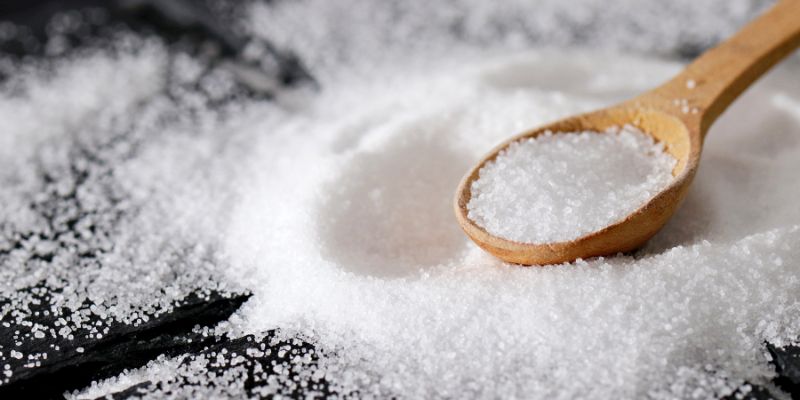Swapping Table Salt For A Potassium Alternative Cuts Blood Pressure: Know The Fact
Oct 18, 2023 By Nancy Miller
Is it helpful to use a low-sodium alternative? New studies show that the alternative with additional potassium significantly decreases the risk of stroke and death.
A recent study suggests salt substitutes reduce stroke, heart attack, and death. We provide the BHF's perspective behind the news. One of the largest diet change studies ever done. Researchers for Global Health published it in The New England Journal of Medicine.
We know that salty diets elevate blood pressure and heart and circulation illnesses. The researchers wanted to know how salt substitutes affected health. Supermarkets sell salt replacements that taste like salt and have less sodium chloride and more potassium chloride.
This study monitored 21,000 Chinese adults from 600 villages with stroke or poorly controlled blood pressure for approximately five years. Some villages received a salt replacement for daily use. Other villagers used normal salt.

Why Limit Salt?
Nearly half of U.S. individuals have hypertension. Hypertension, known as the "silent killer," increases the risk of heart attack and stroke. Too much sodium in the diet causes hypertension in adults. Salt is needed to maintain a healthy fluid balance and help muscles and neurons function.
Too much salt promotes fluid buildup in blood arteries, pushing the heart to pump more blood and raising blood pressure. Many processed, packaged, prepared, and restaurant foods in the U.S. are high in sodium. Over 75% of Americans get sodium from these meals, not salt shakers.
How Can Potassium Lower Blood Pressure?
Blood pressure is mm HG. Systolic and diastolic values are included. While diastolic implies decreased artery pressure during the brief resting interval between heartbeats, systolic reflects the force at which the heart pumps blood around the body.
In the systematic study, dietary salt alternatives reduced systolic blood pressure by 4.61 mm HG. Overall, diastolic blood pressure dropped 1.61 mm HG.
Potassium affects bodily fluid storage and urine output. Blood fluid increases if your body retains water. That increases blood pressure by pressuring blood vessel walls. Kidneys filter blood into the bladder to remove excess fluid. This process requires a delicate sodium-potassium balance.
Salt raises blood pressure with sodium. Too much salt increases blood sodium, which holds water. That disrupts the delicate sodium-potassium balance needed to draw water from the blood into the kidneys.
Consuming more potassium-rich foods can restore balance, improve renal function, and lower blood pressure.
Understanding Potassium's Heart-Health Benefits:
Hypertension can be managed with potassium-rich foods because potassium reduces sodium's effects. Eat more potassium and remove more sodium through pee. Potassium also reduces blood vessel tension, lowering blood pressure.
Healthy persons with blood pressure above 120/80 mm Hg should increase potassium through diet. In people with kidney illness, any condition that impairs potassium handling or certain drugs, potassium might be dangerous. Talk to your doctor about it if you want to take more potassium.
Why Is It Beneficial To Increase One's Potassium Intake?
Foods high in potassium can aid in a variety of ways, including:
- Lessen the salt in your diet to lower blood pressure.
- Vascular relaxation
- Fulfill nutritional needs by offering dietary fiber, vitamins, and antioxidants.
- Take care of your heart and brain.
Can Too Much Potassium Be Harmful?
Too much potassium can affect kidney patients. Too much potassium can build up as kidneys lose their ability to eliminate it. High potassium levels may precede symptoms. High potassium levels can cause nausea, vomiting, irregular pulse, shortness of breath, and chest pain. High potassium levels can cause nausea, fainting, and a weak pulse.
Make sure to see a doctor before using any OTC potassium supplement. Salt replacements can boost potassium in those with certain health issues and those using ACE inhibitors for high blood pressure, so consult your doctor before using them.
Low-Sodium Salts Alternatives:
You can buy low-sodium salt substitutes if you're trying to cut back on salt but can't cook without it. These taste salty but have less sodium.
These goods have potassium instead of sodium. They may lower blood pressure if used instead of salt but don't add them to your diet to boost potassium. The items may not be suited for those with kidney or diabetes, so see your doctor or nurse first.
But Are They Good For You?
Potassium chloride lowers blood pressure. Salt alternatives can be a healthy solution for many people since they reduce sodium and increase potassium.
Salt alternatives contain potassium, which certain individuals should avoid. In those with kidney, heart, liver, or diabetes, salt substitutes can boost blood potassium levels dangerously. If taking ACE inhibitors or potassium-sparing diuretics, salt replacements may raise blood potassium levels too high.
When To Take Potassium For Blood Pressure?
The usual diet has enough potassium. A supplement may be needed if your blood potassium is low. The following supplements may trigger:
- Drugs like diuretics, laxatives, and insulin
- Stomachache or vomiting
- Perspiring often
- Eating disorders, dietary restrictions
Doctor-prescribed supplements are best. That has several causes:
- They can recommend a dosage based on your needs.
- See a doctor if you need a stronger dose than what is offered without a prescription.
- Monitor your blood potassium levels when taking potassium supplements. Because potassium levels can be dangerously high.
- A potassium supplement won't lower blood pressure for low-salt eaters. Blood pressure medication and potassium supplements are usually needed together. After taking a potassium supplement, your blood pressure may drop weeks later.

Conclusion:
Maintaining a healthy potassium level is a key component in doing so. However, the requirements of each individual vary. Potassium is typically easily obtained from food sources. Whether or not you need to take a supplement might be affected by the medications you take and the state of your health.
Regular blood tests with your doctor are essential if you need a supplement. That way, you may rest assured that your levels never rise above what is considered safe.








